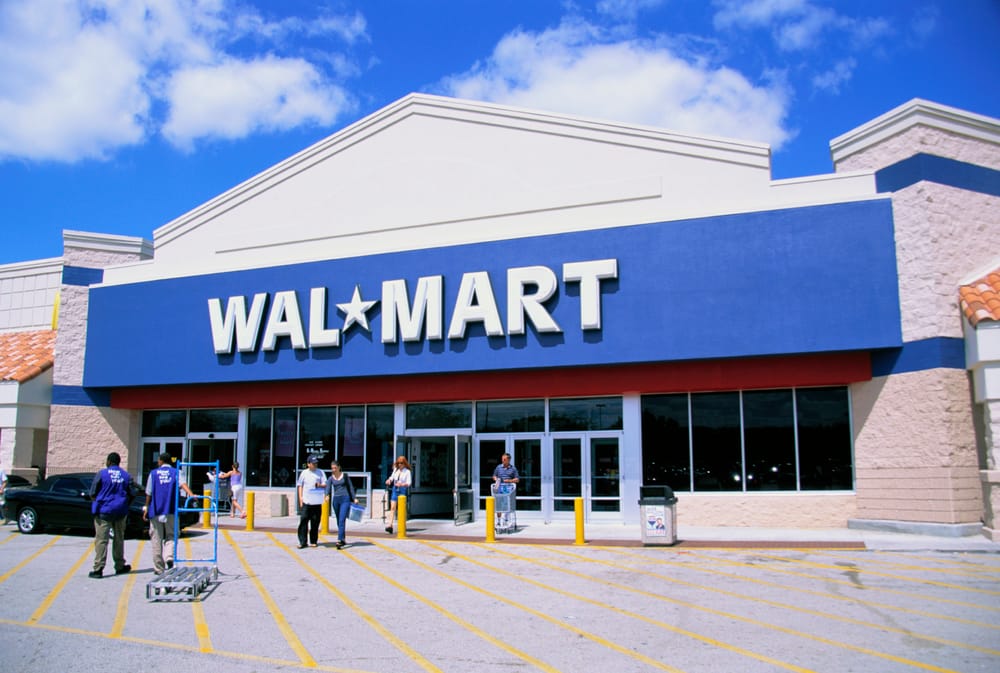Low prices are not the only thing Walmart is rolling back the week before Black Friday, the day marking the beginning of the busiest shopping season. On Monday, the company announced its plan to roll back its diversity, equity, and inclusion programs. Conservative activist Robby Starbuck bragged, "This is the biggest win yet for our movement to end wokeness in corporate America," after learning of Walmart's decision. His response highlights how the term "woke" has become a pejorative term for those opposing diversity programs. As the largest company to roll back DEI programs, Walmart's announcement exposes why a company typically makes a poor ally to marginalized groups.
"Walmart will no longer consider race and gender as a litmus test to improve diversity when it offers supplier contracts." This may result in fewer products by black-owned companies on the shelves, as the company will no longer consider the race of distributors. Furthermore, the supercenter will not be renewing "a racial equity center," previously "established through a five-year $100 million philanthropic commitment from the company with a mandate to 'address the root causes of gaps in outcomes experienced by Black and African American people in education, health, finance, and criminal justice systems." How could a company that, just a few years ago, supported diversity programs be singing such a different tune today?
The goal of profitability is, at times, at odds with supporting racial equity initiatives. It depends on the political climate. For instance, while many companies pledged their support and allocated financial resources for pro-diversity programs following the police killing of George Floyd, a 46-year-old Black man in Minneapolis, years later, we're seeing the shallow depth of their commitment. Some companies were only trying to match the moment. Yet, now that advancing racial equity is no longer en vogue, and concepts like "DEI" and "woke" have become ostracized in some political circles, Walmart and other companies such as Ford, Toyota, and Lowe's are rolling back diversity, equity, and inclusion programs. In that respect, these companies are like chameleons in a rainforest, changing their color or, in this case, purported values to match their external environment.
Being an ally requires consistency and authenticity. Yet, as Walmart's policy changes indicate, this is a difficult balance for them to broker. For instance, researchers argued in the Journal of Business Research that "given the controversial issues are frequently country-specific," brands should adopt policies to "minimize consumer skepticism in their activism (Sarvacevic & Schlegelmilch, 2024). Their analysis helps expose the public's pressure on companies to align their internal policies with external cultural expectations. If anti-racism is widely endorsed, companies are more likely to adopt policies that address racial inequality. On the contrary, if mentioning racism is taboo, companies are more likely to adopt race-neutral policies and overlook racial disparities.
Electing the first Black president, Barack Obama, in 2008 triggered a wave of white backlash in America. As Yadon and Piston (2028) suggested, his "rise to power increased whites' perception that blacks threaten their dominant position in the United States." Thus, it's no coincidence that somewWhite people responded to seeing a Black man in the Oval Office by opposing programs designed to expand opportunities to racial minorities. Lawrence Glickman argued in the Atlantic, "white backlash controls American progress," as we are collectively limited by grievance politics that portray Black success as an existential threat to be eliminated rather than as a seed to nourish. Thus, under this climate, one could understand how some companies would abandon DEI programs if they lost public support. Of course, there are exceptions, such as Ben & Jerry's, which signaled their long-term commitment to human rights and dignity, social and economic justice, environmental protection restoration, and regeneration, as outlined on its website. However, many companies yield under social pressure.
Perhaps the takeaway here is that, the incentive to make money and appeal to a broader community of consumers often conflicts with policies that foster racial equity. Rather than having a stable set of values, many companies evolve to maximize profitability. Such instability makes most companies poor allies, as any positive change they produce can be easily retracted. Conservative activists use phrases like "Get Woke, Go Broke" to stigmatize and further de-incentivize companies from adopting diversity, equity, and inclusion programs. Warren (2022) noted, "When firms are labeled as 'woke' or 'woke washing' because of corporate social initiatives (CSI), the firms suffer status loss and discrimination, and then experience stakeholder backlash, which may entail losing customers, suppliers, and investors." In other words, when companies promote diversity, equity, and inclusion programs, they may face social backlash for committing to these ideals.
While a company can become an ally to Black people or other racial minorities, achieving this status is an uphill battle. It would require maintaining a set of values regardless of the political climate, and as Walmart's announcement demonstrates, some companies are unwilling to go the distance. Despite a 2021 survey of high-ranking Black employees saying career advancement was difficult at Walmart and would not recommend working there, the company is rolling back its efforts to foster racial equity rather than addressing racism. In doing so, they expose the limitations of a company to act as an ally. Far too often, their support is temporal.
This post originally appeared on Medium and is edited and republished with author's permission. Read more of Dr. Allison Gaines' work on Medium.
